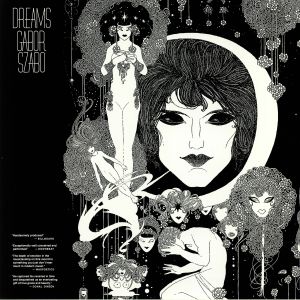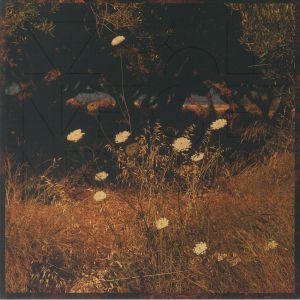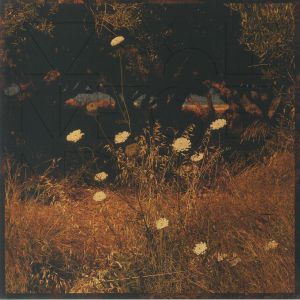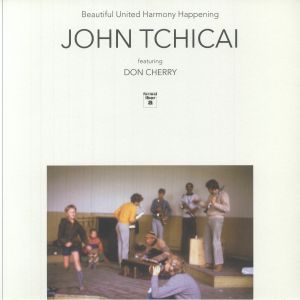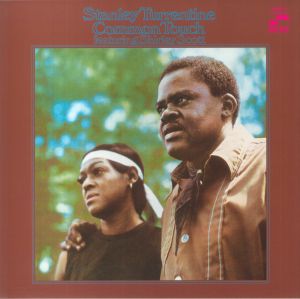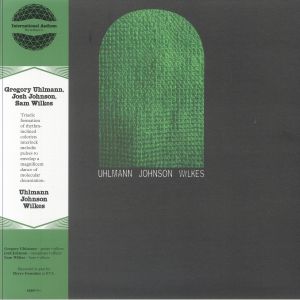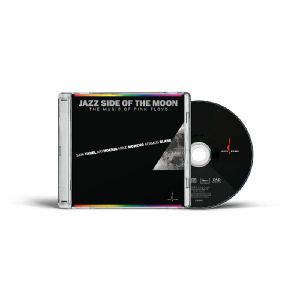Filter
Genre
Release Date
462
Not Forthcoming
4
Today
7
Last Week
10
Last 2 Weeks
16
Last Month
41
Last 2 Months
104
Last 6 Months
196
Last Year
Artist
Release Title
Price
Tags
Back catalogue:
Juno's full catalogue of
Alben
Review: Hungarian jazz guitarist Gabor Szabo released some mighty fine music during his lifetime, including a string of brilliant albums on Impulse in the mid 1960s. By 1968 he'd left the legendary jazz imprint, but the quality of his releases just kept improving - as this reissue of key album "Dreams" proves. Naturally his fluid, partially improvised, often bluesy electric and acoustic guitar solos feature prominently throughout, bobbing and weaving around atmospheric backing tracks that variously mix and match elements of jazz, folk, South American rhythms, folk-rock, flamenco and gypsy-jazz. It's a brilliant, often awe-inspiring musical blend.
… Read moreGespielt von: Juno Recommends Jazz, Simon S
in stock $46.39
Earth Patterns (LP + MP3 download code in spot-varnished sleeve)
Cat: BAY 119V. Rel: 18 Aug 22
in stock $23.04
Earth Patterns (limited translucent red marbled vinyl LP in spot-varnished sleeve (indie exclusive))
Cat: BAY 119VX. Rel: 18 Aug 22
in stock $24.98
Cat: 1FFJT 176. Rel: 14 Jan 25
Review: Alga Marghen has been long renowned for its dedication to avant-garde and experimental sound art and now it ventures into new territory with Formalibera, a label devoted to free jazz. Its inaugural releases feature never-before-heard archival recordings by saxophonist John Tchicai, which were originally created in Copenhagen during the 1960s and '70s. This second album from the crew showcases two stunning performances: first is 'The Education of an Amphibian' with Shahib Shahab and then comes 'Beautiful United Harmony Happening' with Don Cherry. These landmark releases offer a rare glimpse into Tchicai's groundbreaking career and free jazz's radical evolution.
… Read more in stock $34.86
Alterations (limited LP)
Cat: SUBLOGOS 02. Rel: 06 Apr 23
in stock $23.61
Common Touch (Classic Vinyl Series) (180 gram audiophile vinyl LP)
Cat: 453532 7. Rel: 20 Oct 22
Gespielt von: Juno Recommends Jazz
in stock $29.63
Uhlmann Johnson Wilkes (LP with obi-strip)
Cat: IARC 95LP. Rel: 13 Mar 25
Review: Uhlmann Johnson Wilkes is the debut album from Gregory Uhlmann, Josh Johnson and Sam Wilkes, a collective of three versatile improvisers, arrangers and producers whose work spans jazz, rock and experimental. Across 11 instrumental tracks, they explore a jazz-informed take on progressive electro-acoustic chamber music that brings beauty, melody and rhythm to the fore. The record was conceived during live shows and a home session in Los Angeles and features Uhlmann's mournful fingerpicked guitar, Wilkes' bass chording and Johnson's effect-laden saxophone. Their arrangement-minded improvisation results in some nicely otherworldly textures as they push their instruments to create a spacious, lyrical sound.
… Read more! low stock $24.43
in stock $28.54
Singing On The Wind (CD with obi-strip)
Cat: URDC 66. Rel: 19 Dec 22
in stock $27.44
Jazz Side Of The Moon (reissue) (180 gram one-step vinyl LP)
Cat: EVLP 043BL. Rel: 24 Apr 25
in stock $34.86
Jazz Side Of The Moon: The Music Of Pink Floyd (reissue) (Hybrid SACD)
Cat: EVSA 3005S. Rel: 01 May 25
in stock $24.98
Beautiful Bamboo Flute (gatefold LP)
Cat: MRBLP 214. Rel: 27 Sep 19
Review: In 2002, the Japanese government recognized bamboo flute maestro Hozan Yamamoto as a "living national treasure". It was in honor of his lengthy career in music, and in particular the way he championed a traditional Japanese instrument even when he was turning his hand to Western music. "Beautiful Bamboo Flute", an album first released in 1971 and almost impossible to find since, is a superb example of this. It sees him deliver haunting, emotional and life-affirming solos over funky jazz, big band and fusion backing tracks that tend towards the fresh and funky. It's an unusual blend, but also an invigorating and exciting one.
… Read more in stock $22.50

 USD
USD





